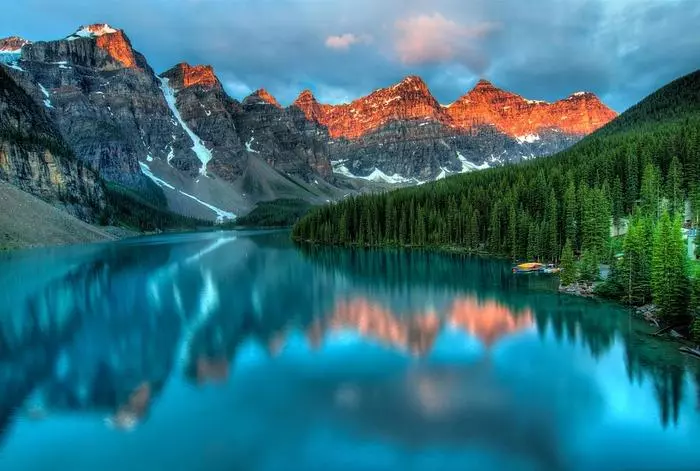It happens so that a person spends all his life in one place, and then suddenly something clicks in his head and everything can not throw an obsessive thought. This may happen both in relation to people and places. In this case, we are talking about mountain slopes. And we are not talking about what you saw a report on the Trevel-channel from the top of Elbrus, you must visit this place. Probably, the mountains are the only look of the landscape that causes us ambiguous feelings: starting with fear of height, and ending with a feeling of freedom.
Experts believe that mountain peaks attract you not just like that - it means you have something to think about your life. If you are not indifferent to the stony landscape and live without climbing and hiking, you may learn your feelings in the stages of the lifting described below, which are offered psychologists.

Real ascent replenishes the lack of promotion in ordinary life
Photo: pixabay.com/ru.
First stage: climbing
As psychologists believe, the desire to conquer the top in the literal sense can say that you have a certain imbalance in the shower. Suppose you are working for many years on the post that attracts you to everyone, but you feel that you need the promotion that is not observed. In this case, our psyche requires at least some climbing - even if you do not career, but the ride on the slope with further overcoming obstacles to the top to the top will remove stress and will give more confidence. Of course, this does not mean that every person, dissatisfied with work and its position immediately goes to the mountains, however, according to statistics, it is people with an imbalance between expectations and unrealized dreams to conquer the mountain peak. The same who leads a measured and quiet life, pleaseing the existing benefits, rarely come to the mind of the conquest of Everest. By the way, the height of the mountain directly depends on the degree of claims of a person to himself and the world around.
It turns out that a person challenges himself, deciding to climb.

However, many rose to the mountain so that they immediately come down from it
Photo: pixabay.com/ru.
Second Stage: Views
Another interesting observation of psychologists: there is a big difference between, from what point the person is enjoying the panorama - from the foot or from the top. Those who admire the mountain massifs from the Earth, who can consider the tops with clouds, as a rule, people are wise and sensitive, as psychologists believed. Such people are firmly on their feet, they know what they want and how to achieve it. So know if you are attracted by the view of the mountain, and not the process of its conquest - you have reached enlightenment, and the person who has achieved equilibrium in the soul itself. Moreover, this wisdom does not depend on age.
If a person seeks to observe what is happening on Earth from the highest point, it means he is ready to start from scratch or all his life or some matter. Such people are usually firmly on their feet in every sense, so they are not afraid of the height.

If you enjoy the view from the top, and not at the foot, then you are ready for change
Photo: pixabay.com/ru.
Third Stage: Descent
From a psychological point of view, the descent is considered as the desire to return to where it will be cozy and safely. These people climb the mountain with great pleasure, but even greater pleasure they gives the return process. It may say that in his usual life, a person has taken too much, and I wear it hard. Therefore, the descent from the mountain, he perceives as a life "descent", where the duties will not be so much, and they will require less, however, circumstances do not allow to relax.
Natural landscapes are really able to influence our consciousness, for example, it is not necessary to go far - the absolute majority of great authors were delighted with the mountains and dedicated them entire chapters in their works: Lermontov, Pushkin, Mayakovsky and many others.
Yes, all people have their own preferences: you can say that they are indifferent to mountains, but you probably have our own addictions, such as sea depths, but this is a completely different conversation.
